When making soap, you'll need FDA-approved materials like food-grade platinum silicone for your molds to guarantee safety and compliance with Title 21 CFR Section 177.2600. These materials prevent harmful chemical leaching, withstand high temperatures up to 450°F, and maintain structural integrity through repeated use. Look for molds with documented FDA and CE certifications to assure non-toxic standards for skin contact. The right choice of materials will open endless possibilities for your soap crafting journey.
Understanding FDA Safety Requirements for Soap Mold Materials
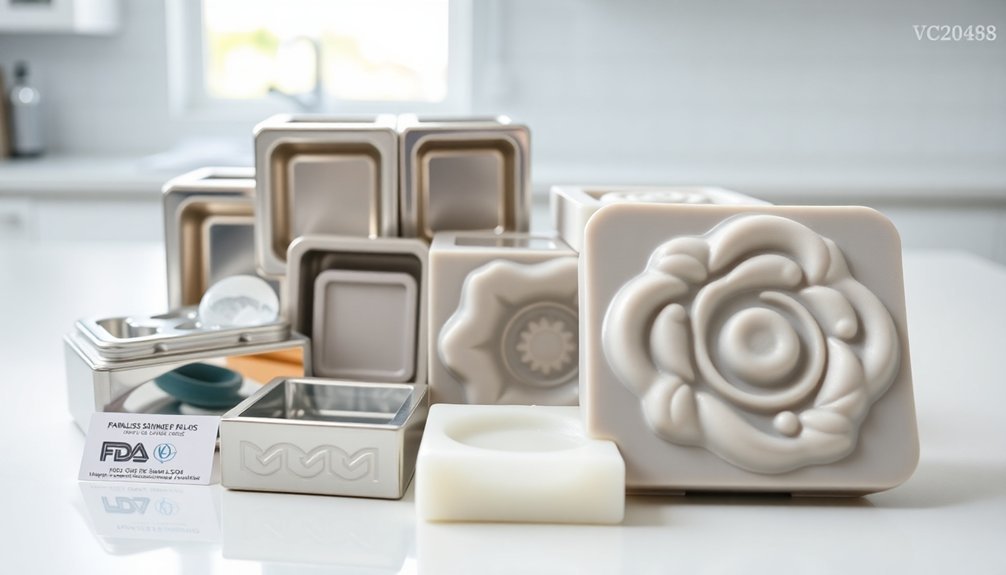
When creating soap molds for personal or commercial use, you'll need to understand the FDA's strict safety requirements that govern material selection.
Your molds must be made from food-grade materials that won't leach harmful chemicals into your final products. The FDA's Title 21 CFR Section 177.2600 requires you to use certified materials like platinum silicone, which meets non-toxic standards for direct skin and food contact.
FDA regulations mandate food-grade mold materials, such as platinum silicone, to ensure products remain safe and chemical-free for consumer use.
You'll find that these safety standards are essential, as they guarantee your soap molds remain durable and maintain their integrity when exposed to heat during the soap-making process.
Regular testing and certification from organizations like the FDA and CE verify that your molds meet these stringent requirements. This thorough approach to safety standards protects both you and your customers.
Essential Properties of Food-Grade Silicone in Soap Making
Food-grade silicone stands as the gold standard for soap making molds, offering essential properties that make it ideal for both hobbyists and commercial producers.
You'll find that FDA-approved food-grade silicone meets strict safety requirements, guaranteeing your soap making process remains safe and compliant.
When you're working with high-quality silicone molds, you'll appreciate their non-toxic, skin-friendly nature, making them perfect for creating products that'll come in direct contact with skin.
The flexible and heat-resistant properties of these molds mean you won't have to worry about deformation when pouring hot soap mixtures.
They're also incredibly easy to use, thanks to their non-stick surface that allows for smooth unmolding while preserving intricate design details.
This durability guarantees your molds will maintain their integrity through repeated use.
Platinum-Grade Vs Standard Silicone Mold Materials
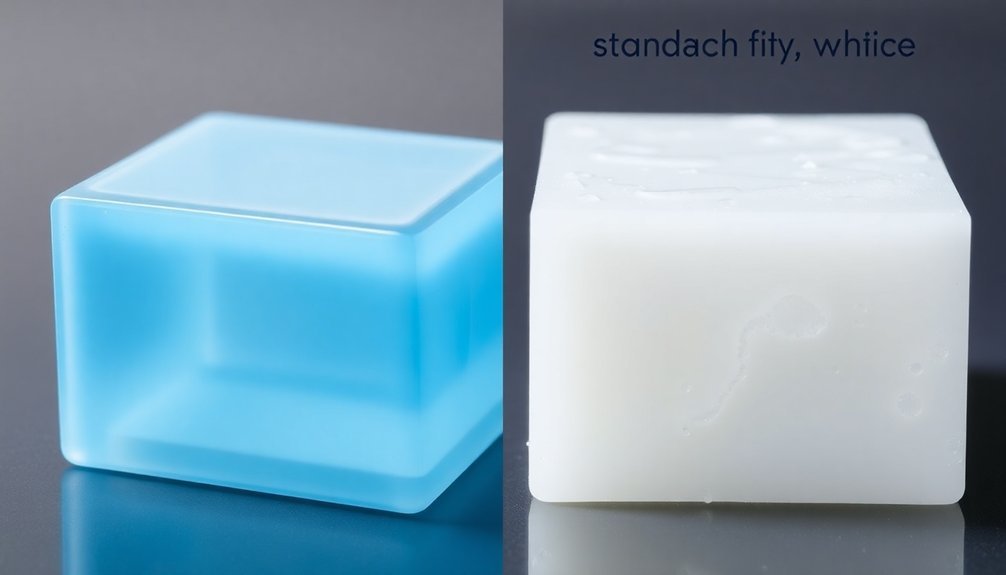
While both types serve soap makers well, platinum-grade silicone molds offer distinct advantages over their standard counterparts.
You'll find that FDA-approved platinum-grade silicone provides superior food safety certification, ensuring your soap making process remains non-toxic and safe.
The enhanced durability and flexibility of these molds mean they won't deform or tear as easily, making them a smart long-term investment.
You'll appreciate the non-stick surface of platinum-grade silicone molds, which delivers cleaner unmolding and crisper design details in your finished soaps.
They're also versatile enough to handle higher temperatures, letting you use them for various crafting projects.
Unlike standard options that might contain questionable fillers, platinum-grade soap making molds use a safer curing process that meets strict safety regulations.
Safety Certifications and Compliance Standards
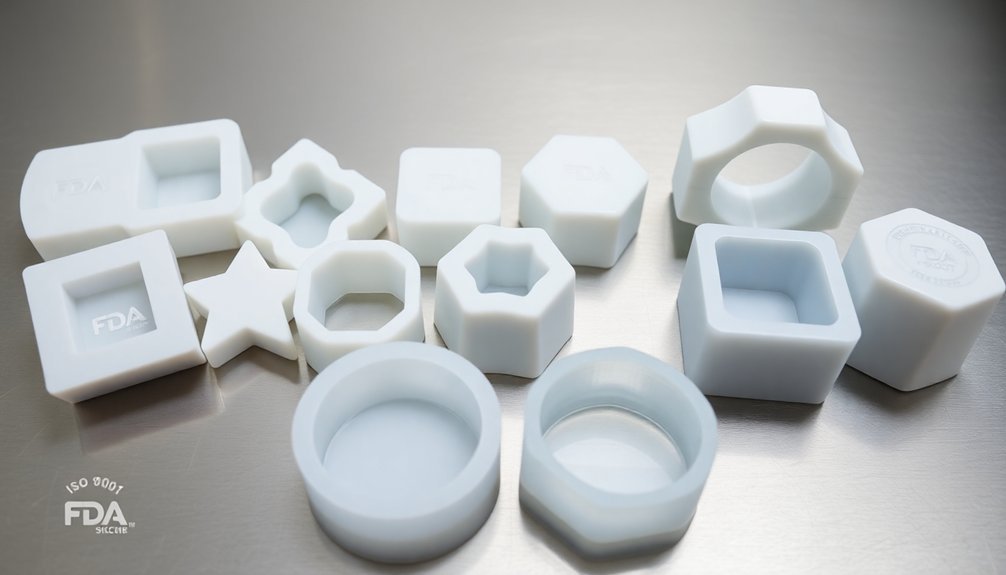
When choosing soap molds, you'll find FDA certification guarantees rigorous testing for harmful substances and guarantees materials meet strict food-contact safety requirements.
CE compliance adds another layer of assurance by validating that your molds conform to European health and environmental protection protocols.
These global safety standards work together to protect both hobbyist and professional soap makers, confirming that materials won't leach toxins or compromise the quality of your finished products.
FDA Testing Requirements
To guarantee soap molds meet essential safety standards, the FDA implements thorough testing requirements under Title 21 CFR Section 177.2600. You'll need to verify your materials have undergone rigorous testing for food-grade certification and safety compliance.
| Material Type | Testing Required | Safety Level |
|---|---|---|
| Platinum Food-Grade | Chemical Analysis | Highest |
| Food Grade Silicone | Leaching Tests | Very High |
| Standard Silicone | Basic Safety Check | Moderate |
| Non-FDA Materials | None Required | Unknown |
When selecting soap molds, you'll want to confirm that manufacturers maintain proper documentation of their FDA compliance. This includes material safety data sheets and testing results that confirm non-toxic properties. The FDA's regular inspections and audits guarantee these materials won't leach harmful substances during normal use, giving you confidence in your soap making process.
CE Compliance Protocols
As soap makers expand into international markets, CE compliance protocols provide essential safety assurances beyond FDA requirements.
When you're selecting molds for your soap making business, look for those that meet both FDA and CE compliance standards, particularly those made with food-grade silicone.
CE certified molds undergo thorough testing to verify their safety for consumer use. The certification confirms that manufacturers have used high quality materials and followed strict production processes.
You'll find that CE compliant molds are rigorously evaluated for safety standards, including their material composition and manufacturing methods.
Manufacturers must maintain detailed documentation and may face regular audits to guarantee ongoing compliance. This rigorous oversight guarantees that your soap making equipment consistently meets European health and environmental protection requirements.
Global Safety Standards
Maintaining global safety standards requires familiarity with multiple certification systems beyond local requirements.
When you're selecting soap making molds, you'll need to verify that they meet FDA-Approved standards and CE certification requirements to guarantee optimal safety.
Platinum food-grade silicone molds that comply with FDA's Title 21 CFR Section 177.2600 specifications offer you the assurance of using non-toxic materials that are safe for cosmetic production.
These safety standards play a vital role in building consumer confidence and facilitating global trade.
By choosing molds with recognized international certifications, you're assuring that your soap making materials meet stringent health and environmental protection requirements.
The combination of FDA approval and CE certification provides you with thorough validation that your molds meet worldwide safety benchmarks.
Material Durability and Long-Term Performance
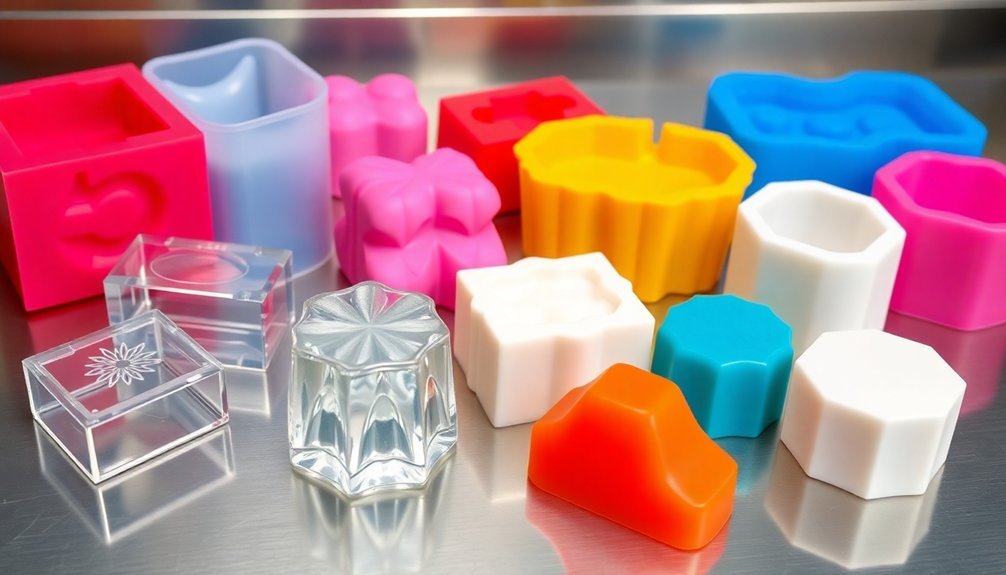
Your soap making molds undergo rigorous heat resistance testing, demonstrating stability at temperatures up to 450°F without warping or material degradation.
Through extensive tear strength analysis, platinum food-grade silicone proves its exceptional durability, withstanding over 1,000 flex cycles without showing signs of weakness or structural compromise.
These performance metrics guarantee you'll get consistent results from your molds, as they maintain their shape and flexibility even after hundreds of uses in various soap making conditions.
Heat Resistance Testing Data
When selecting FDA-approved silicone molds for soap making, heat resistance plays an essential role in ensuring long-term durability and performance.
You'll find that Platinum Food-Grade silicone molds can withstand temperatures up to 450°F (232°C) without compromising their structural integrity.
Through extensive heat resistance testing, manufacturers verify that these silicone molds don't release harmful chemicals or odors when exposed to high temperatures.
You can trust their FDA certification, as it's backed by standardized testing that confirms the molds maintain their shape and flexibility even after repeated heating and cooling cycles.
The durability of premium silicone molds means you'll get years of reliable use while maintaining peak safety standards.
These qualities make them ideal not only for soap making but also for various food-related applications.
Tear Strength Analysis
To guarantee successful soap making ventures, the tear strength of silicone molds directly impacts their longevity and performance. When you're selecting FDA-approved molds, take into account premium platinum silicone options that offer superior tear strength ratings above 20 kN/m. These high-quality materials assure your molds won't tear or deform during repeated use.
Key aspects to reflect on for ideal tear strength and durability:
- Choose molds made from premium-grade platinum silicone that's specifically designed for frequent soap making
- Implement regular maintenance through gentle hand washing to preserve the mold's structural integrity
- Monitor your molds for early signs of wear to prevent potential tearing during use
Understanding tear strength specifications helps you make informed decisions when investing in silicone molds, guaranteeing they'll maintain their shape and effectiveness throughout numerous soap-making sessions.
Flex Cycle Performance
Longevity stands as a critical factor when evaluating flex cycle performance in FDA-approved silicone molds.
You'll find that Platinum Food-Grade silicone molds maintain their structural integrity even after repeated use, thanks to their exceptional flexibility and durability.
These FDA-approved silicone molds are engineered to withstand constant bending and flexing without compromising their shape or safety standards. They're safe for food contact and maintain high quality throughout their lifecycle.
You can expect consistent performance during your soap making process, as these durable molds won't deform or deteriorate with regular use.
To maximize your mold's flex cycle performance, it's crucial to follow proper cleaning protocols.
With gentle hand washing and appropriate care, you'll extend the lifespan of your silicone molds while ensuring they remain pliable and reliable for all your soap making needs.
Proper Care and Maintenance of FDA-Approved Molds
Maintaining FDA-approved soap molds properly will greatly extend their lifespan and guarantee consistent, high-quality results. To preserve your silicone molds, you'll need to focus on proper care and regular maintenance.
Proper maintenance of FDA-approved soap molds ensures longevity and reliable results through consistent care and attention to detail.
Always wash them by hand using warm water and liquid soap, as dishwashers can damage the material.
When you're done using your FDA-approved molds, store them in a cool, dry area away from direct sunlight to prevent warping and maintain their quality. Regular cleaning and inspection will help you spot any wear before it affects your soap making.
- Hand wash with gentle soap and warm water after each use
- Store in a temperature-controlled environment away from sunlight
- Check regularly for signs of wear or damage and replace when necessary
These simple maintenance steps will help your molds last longer and perform better.
Selecting the Right Material for Different Soap Types
Choosing the right material for your soap molds depends heavily on your specific soap-making method and desired outcome.
For cold process soaps, you'll want high-quality, FDA-approved silicone molds that offer flexibility and easy unmolding. These molds guarantee safe contact with oils and lye throughout the curing process.
If you're making hot process soap, opt for durable, platinum food-grade silicone molds that won't deform under higher temperatures.
For glycerin and melt-and-pour projects, select non-toxic molds with detailed designs that'll create visually striking results.
When working with embedded items or layered soaps, use stable silicone molds that maintain their shape consistently.
Remember to verify that your molds have proper FDA and CE certifications. This guarantees they're safe for soap making and won't contaminate your finished products.
Frequently Asked Questions
What Is the Best Material for Soap Molds?
You'll find platinum food-grade silicone is your best choice for soap molds. It's flexible, heat-resistant, and durable. You can easily unmold your soaps, and it'll maintain its shape through repeated use.
Is Silicone Safe for Soap Making?
Yes, you'll find silicone is completely safe for soap making. It's non-toxic, won't leach chemicals into your soap, and maintains its integrity even with repeated use at varying temperatures. It's ideal for crafting.
Can I Use Parchment Paper for Soap Mold?
Yes, you can use parchment paper in your soap molds. It's a great liner that'll help you remove soap easily. Just make sure you're using unbleached, food-safe parchment and cut it to fit properly.
What Can I Use Instead of Mold?
You can use silicone baking trays, plastic food containers, muffin tins, or cardboard boxes lined with plastic wrap. Even clean yogurt cups and ice cream containers work great when greased properly for easy unmolding.
In Summary
When you're making soap, always prioritize FDA-approved materials for your molds to guarantee safety and quality. Remember to check for proper certifications, choose food-grade silicone when possible, and maintain your molds according to manufacturer guidelines. By selecting the right materials and caring for them properly, you'll create safe, professional-quality soaps while meeting all regulatory requirements. Don't compromise on mold safety – your customers deserve the best.
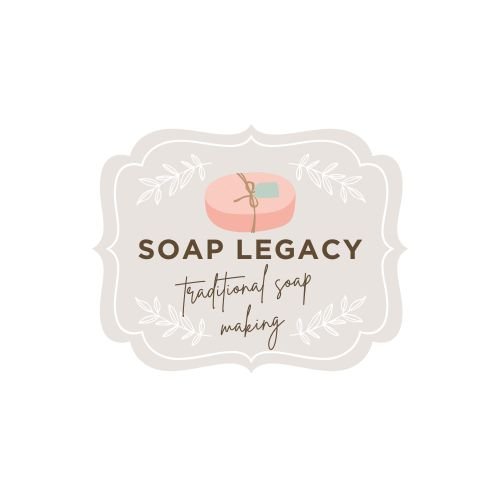
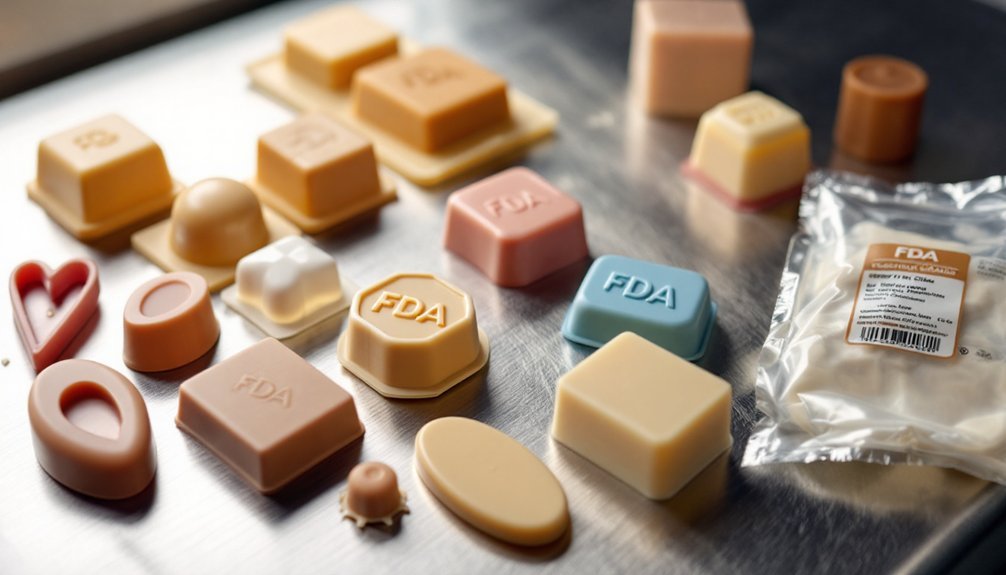
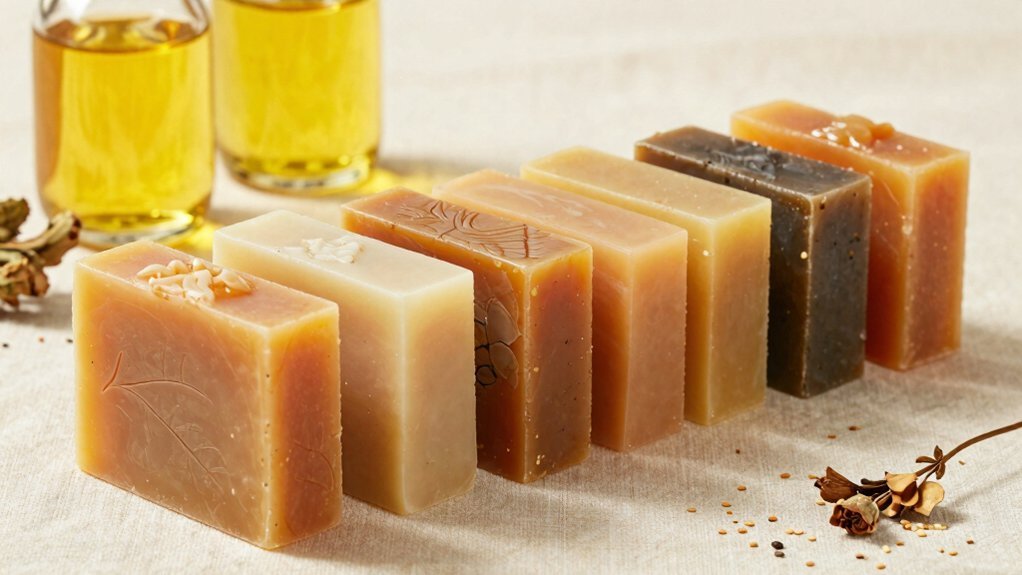
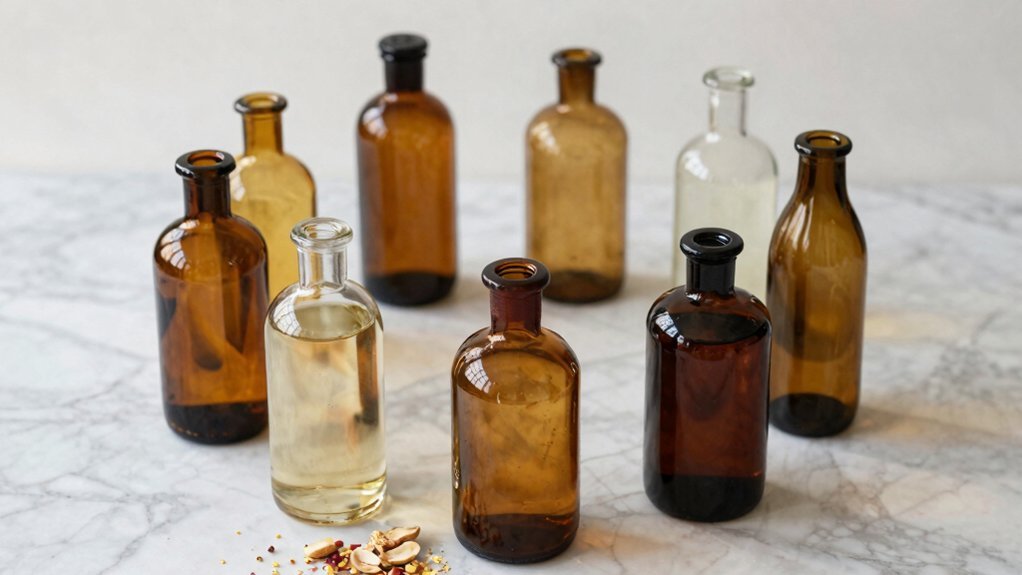
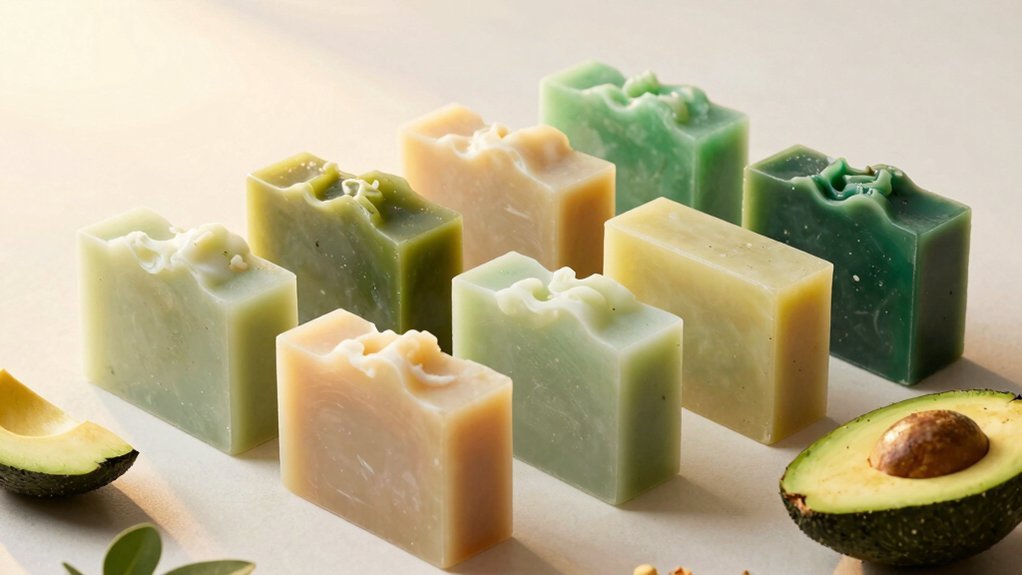
Leave a Reply